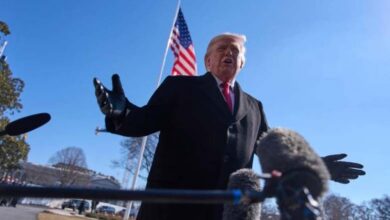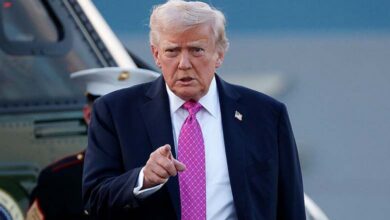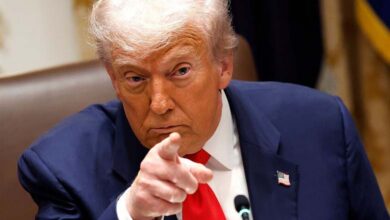Why Does the United States Fear Intensifying Relations between Moscow and Beirut?
The United States fears the intensification of relations between Moscow and Beirut

Russia’s growing proximity to Lebanon has raised concerns among its political rival, the United States, about the potential spread of Russian bases in the Middle East. This comes amidst multiple crises in Lebanon and attempts at intervention by the United States and France. The Lebanese-Russian relations may ultimately transform Lebanon into a new battleground between the East and the West.
Russia seeks influence within Lebanon, which holds a strategic location on the Mediterranean Sea. Lebanon could provide Moscow with a new port and a trading market, enabling Russia to circumvent Western sanctions.
Russian Expansion in the Middle East
Following Russia’s successful intervention in Syria and its establishment of influence there, as well as the expansion of Russian ties with countries in North Africa such as Algeria and Egypt, Russia now aims to consolidate its position in Lebanon. This would complete Russia’s substantial presence in the Middle East by securing strong allies in Lebanon.
For Lebanon, Russian energy exports could help address major infrastructure problems during an ongoing economic crisis. Moreover, implicit support for the most favored candidate in presidential elections, namely Suleiman Frangieh of the Marada Movement, could free the country from a long period of political paralysis and strengthen ties between Syria and Lebanon.
Opening Multiple Fronts
Meanwhile, the White House has been preoccupied with conflicts between Ukraine and Russia, followed by the U.S.-China dispute. This has opened multiple fronts that have affected U.S. focus on the Middle East. Russia seeks to re-enter the Lebanese economic and political scene, viewing it as an extension of its presence in Syria.
Political analyst Karen Gevorgyan stated that despite Lebanon’s small size, the country holds logistical significance due to its Mediterranean coast and numerous ports. A partnership with Lebanon could help Russia bypass Western sanctions on cargo transport. Gevorgyan added that Lebanon represents a logical continuation of Russia’s Middle Eastern policy.
When Russia arrived in Syria, it became apparent that they needed to reinforce positions in neighboring Lebanon. Notably, cooperation with the Orthodox Church has been a focal point. Many Lebanese Christians have grown disillusioned with the West and are attracted to Russia.
Gains and Lebanese Prospects
Mukhtar Ghabash, Deputy Director of the Center for Strategic Studies, stated that Russia is seeking gains and avenues in Lebanon, particularly as it aspires to become a prominent actor in the Middle East.
Ghabash added that Russia’s focus has largely been on Syria in recent years, with Lebanon being an addition or a Western-American-aligned buffer to secure Russia’s interests in Syria.
He continued that while Lebanon is different from Syria, where Russia has long-standing interests and influence, Lebanon has not historically been a locus of Russian presence or influence, acknowledged as a country more aligned with the Western-American axis.












